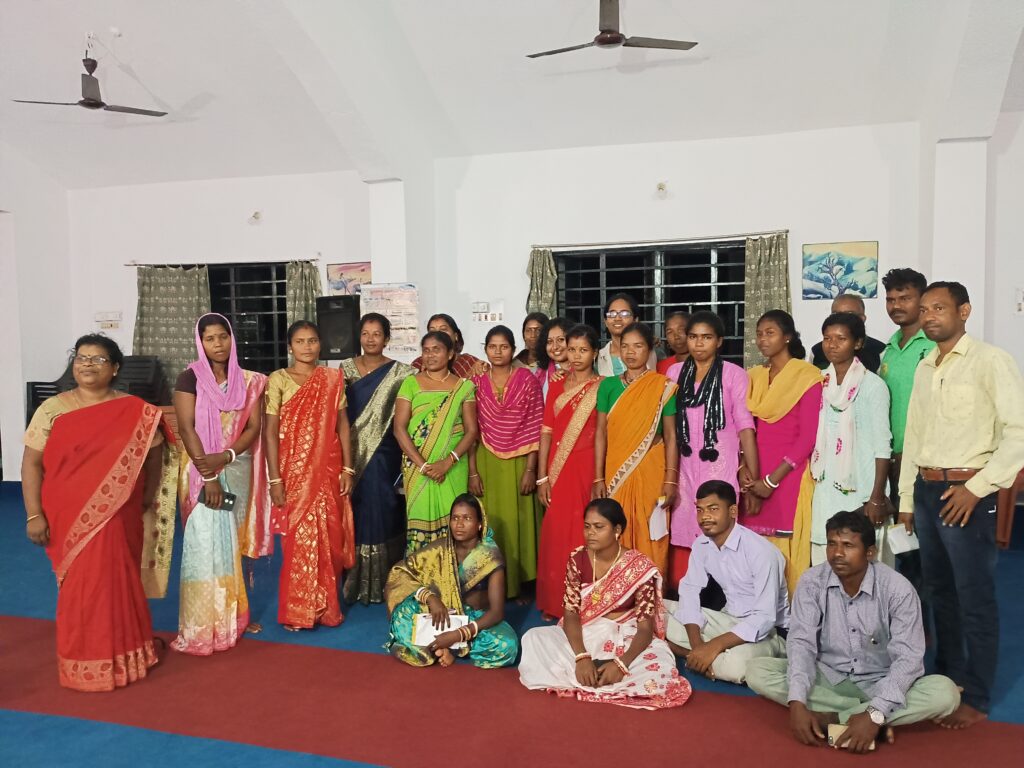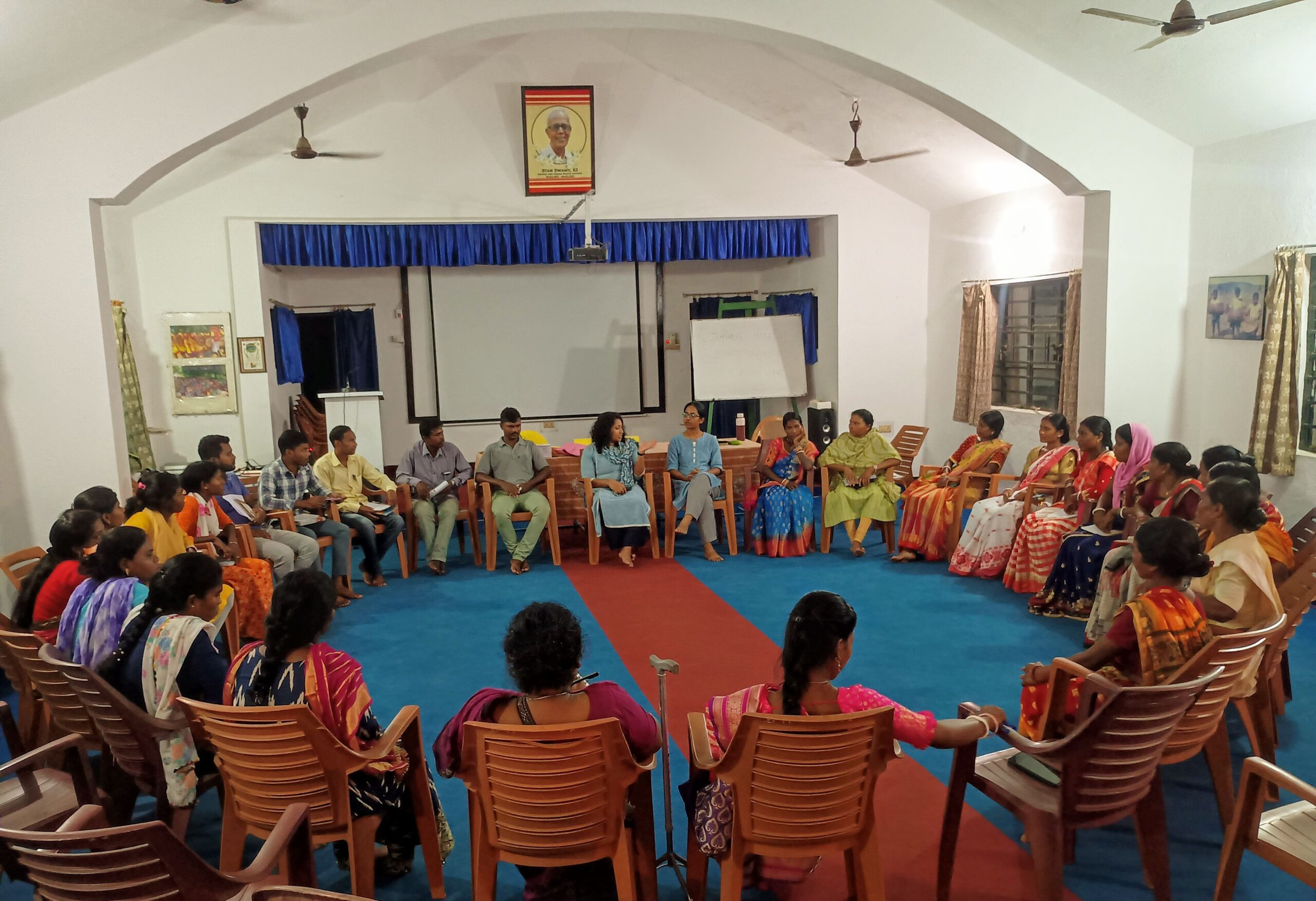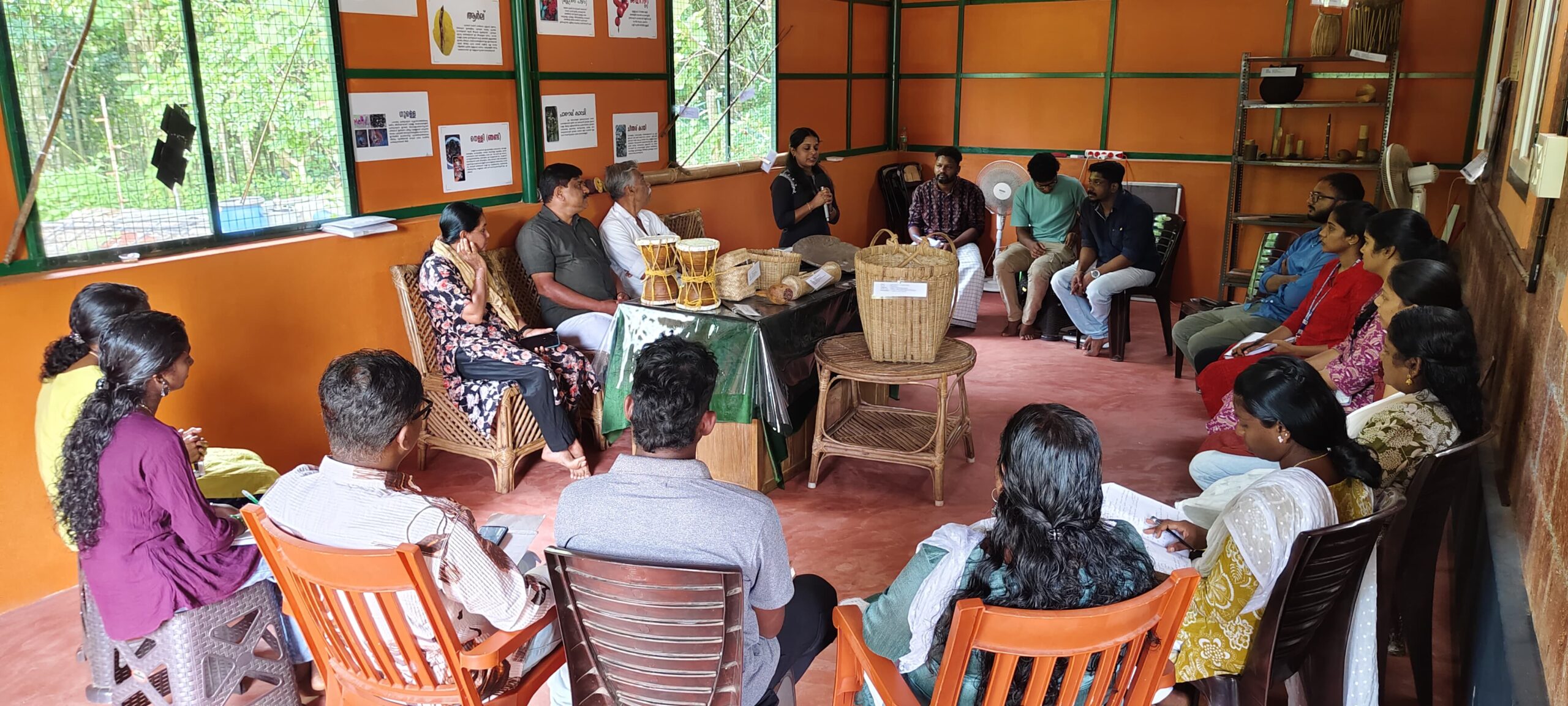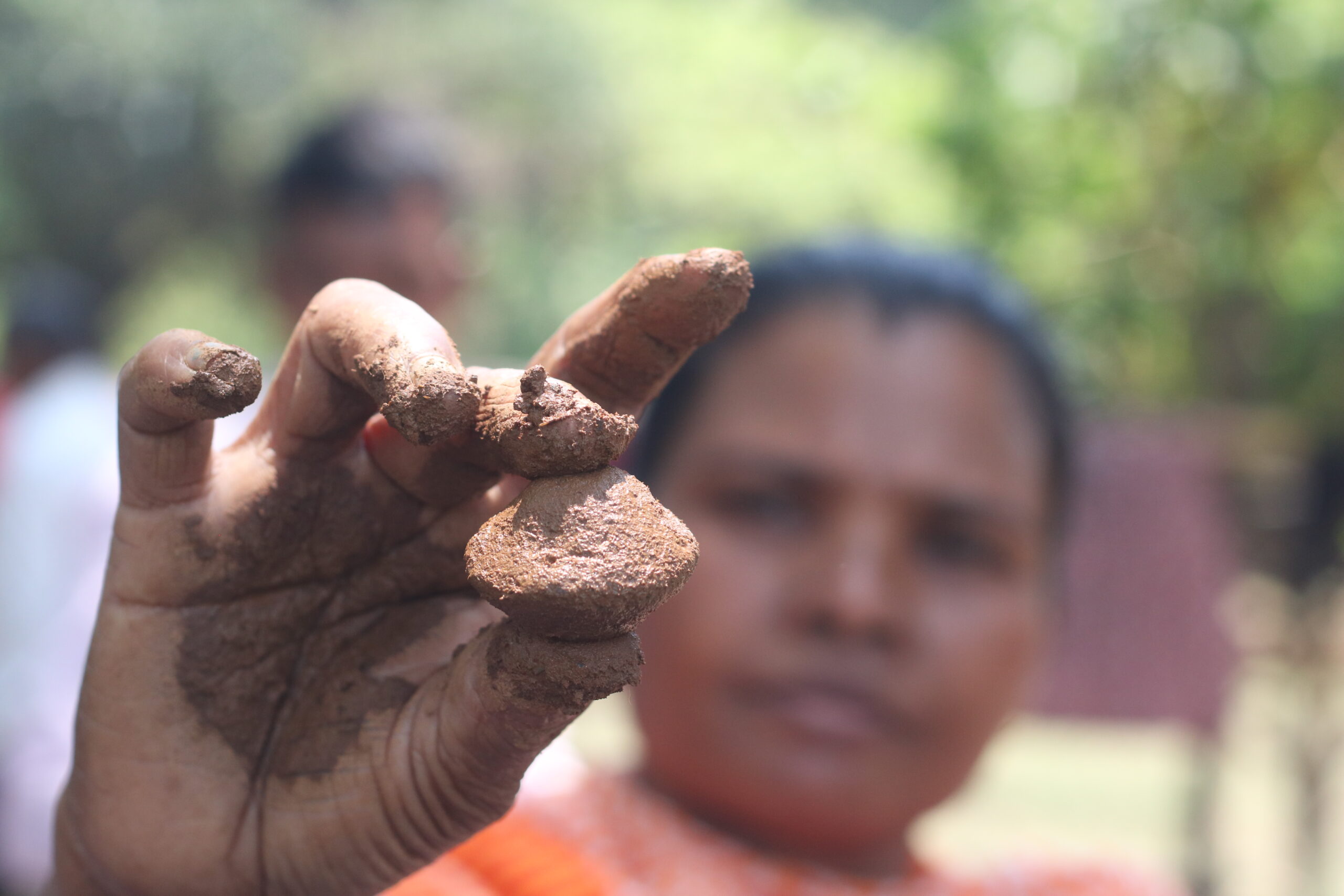By Reshma R., Technical Coordinator, Climate Change
Cover photo: Reshma R
On 3rd and 4th October, we conducted a two-day workshop on Gender and Climate change in Ranchi, Jharkhand. This built on the trainings held at Kotagiri and Nilambur in November 2023 and June 2024 respectively. Bhavya George from the Climate Change team, along with Jyoti Patale and Rohan Mukerjee from the Eastern India team, facilitated the session. The group consisted of 26 participants (20 women, 6 men) from Sabar, Santhal, Nagesia, and Uraon communities from East Singhbhum, Saraikela, and Lathehar districts of Jharkhand, as well as the Purulia district of West Bengal.
The workshop venue was a Tribal training center started by Father Stan Swamy, a Jesuit priest and tribal rights advocate. It was lush and green, a calm haven away from the bustle of the city.
The main objective of the workshop was to train participants on the linkages between gender and climate change within a global and local context. Over two days, the workshop covered topics on climate change impacts and nature-based as well as gender-just climate solutions.
Group Exercises
Over the two days, we also conducted group exercises asking the questions “WHO AM I, WHAT CAN I DO, and WHAT DO I NEED?”. This exercise acted as a thread connecting different sessions in the workshop. Some interesting responses from the “WHO AM I?” question included leader, traditional seed saver, nature educator, and so on.
During the discussion, participants shared how they had experienced changes in their environment. Some examples they shared were the increasing incidence of forest fires, and increase in the spread of invasives like Lantana and Eupatorium. These invasives prevent the growth of the native trees. Another participant mentioned how they have observed an increase in snakes invading the inhabited areas of Sabar village of Purulia. One of the participants highlighted the “dependency on groundwater for agriculture and how this has increased”. Another mentioned how this dependency leads to a decrease in the groundwater. They shared that “the impact of the heat on land would be more, making land unfit for agriculture”.
To make the workshop more engaging, activities like Body Mapping and a Gender Walk were added in the workshop. One participant reflected on the activities, saying “the Body Mapping made me understand the reasons for impacts observed and experienced in our mental and physical health. The activity “gender walk” gave the participants an understanding of how gender plays a role in their lives.”
Two days of sessions ended with feedback from the participants. Most of them shared their thoughts and ideas on how they would use this knowledge, especially in groups they are part of and in their villages. Participants also planned some actions like planting trees, encouraging people to use less plastic, working on the groundwater recharge system, and smart agriculture.



















